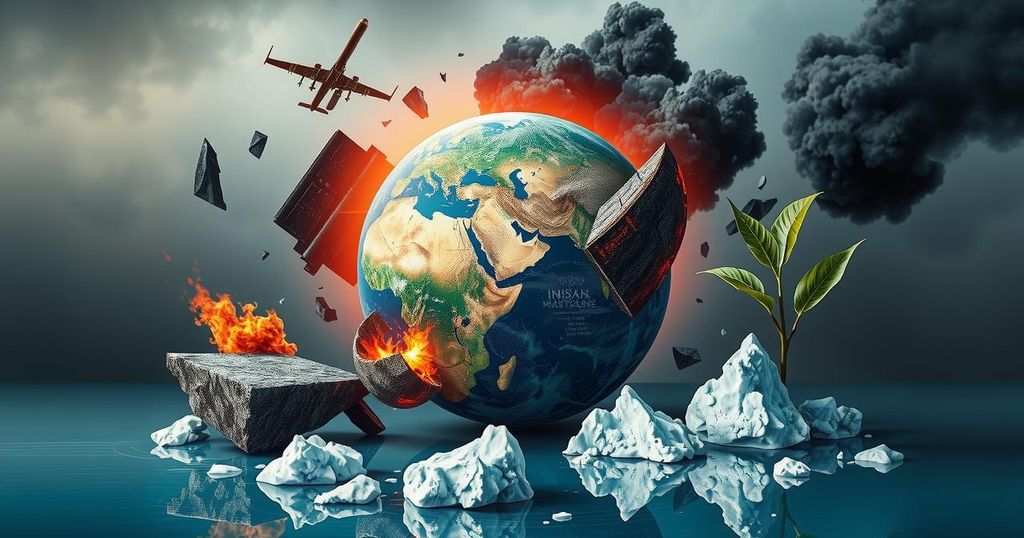The World Economic Forum’s Global Risks Report for 2025 identifies armed conflict and climate change as critical global threats. A survey revealed state-based armed conflict is seen as the top immediate risk, followed closely by extreme weather events. India’s agenda for the upcoming WEF meeting includes a focus on sustainability, innovation, and global partnerships, aiming to address pressing challenges like food security and economic inequality.
The World Economic Forum’s Global Risks Report 2025 highlights armed conflict and climate change as the foremost global threats, accentuating the need for urgent action. A survey involving over 900 global experts showed that 23% regarded state-based armed conflict as the most pressing risk, while 14% expressed concerns regarding extreme weather events exacerbated by climate change, exemplified by the devastating wildfires in Los Angeles.
The WEF’s Global Risks Report, released on January 16, provides a comprehensive overview of potential threats facing the global economy in 2025. It underscores that this decade is crucial for effective international collaboration against challenges such as biodiversity loss, resource shortages, misinformation, cyber threats, and societal polarization, which also remain significant concerns beyond armed conflict and climate change.
In preparation for the annual WEF meeting set for January 20-24 in Davos, India is poised to address global challenges through collaboration on technology and sustainability. The country’s agenda includes showcasing advancements in artificial intelligence and strategic global partnerships, reflecting its commitment to influence discussions on urgent global issues. As these dialogues unfold, India aims to position itself as a leader in innovation and cooperation on the world stage.
Original Source: www.outlookbusiness.com






